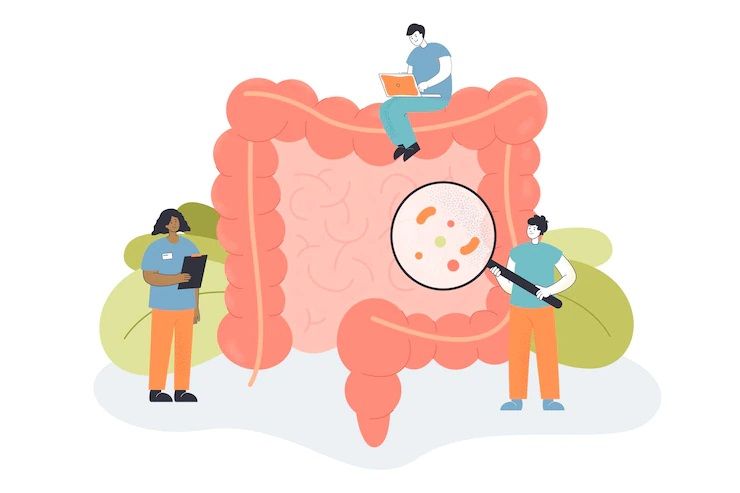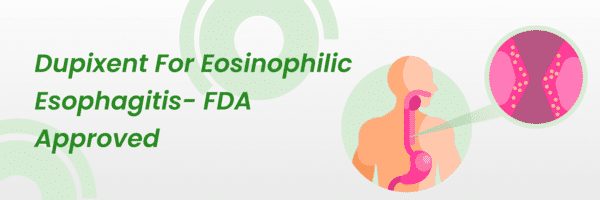Diabetes is a worldwide pandemic and ranks as the seventh leading cause of death in the world. As per the WHO, approximately 1.5 million lives annually are affected by this. It currently affects 537 million people, about 10.5% of the world’s population. It is expected to affect 550 million people by the end of 2030.
Type 1 diabetes accounts for about 5-10% of diabetics worldwide, with about 15 to 20 new cases per 100,000 developing annually. It often develops in childhood or adolescence and is prevalent in about 1 in 500 children and adolescents.
Studies show that in 2021, there were an estimated 8.4 million patients suffering from Type 1 diabetes.
Type 1 diabetes is a chronic autoimmune condition wherein the immune system mistakenly attacks and destroys the insulin-producing cells of the pancreas. Due to this, your body is unable to produce insulin. So, these patients have to rely on insulin injections or pumps to manage their blood sugar levels, as their bodies cannot naturally produce insulin.
Purpose of Pancreas transplant for type 1 diabetes?

Pancreas transplant for Type 1 Diabetes is a remarkable treatment technique. It is a surgical procedure where a healthy pancreas is transplanted from a donor into a recipient with a malfunctioning or absent pancreas. It is typically performed in individuals with severe Type 1 diabetes or other conditions that have led to complete pancreatic failure.
The objective?
To get that insulin production back on track and potentially eliminate the need
for insulin injections.
Your health is too important to ignore – schedule your appointment now.
Pancreas Transplant vs. Other Type 1 Diabetes Treatments?

A pancreas replacement for diabetes differs from other treatments. Because it replaces a non-functioning pancreas with a healthy pancreas as compared to insulin treatment. Although it offers a cure for insulin dependence, it requires lifelong immune suppression and carries some amount of surgical risk.
Sounds encouraging and wants to know if you qualify for it or not? Read further if you are eligible for a pancreas transplant for type 1 diabetes.
Eligible criteria for a pancreas transplant to treat type 1 diabetes

You are eligible for a pancreas transplant with type 1 diabetes if:
- You have poorly controlled Type 1 diabetes
- Are in good overall health
- You have no contraindications.
Your doctor will consider your overall health, age, and other medical conditions before giving the green light for a pancreas transplant.
Procedures involved in a pancreas transplant for type 1 diabetes

The procedure involves the following steps:
- Surgical removal of your diseased pancreas.
- Transplanting a healthy pancreas from a deceased donor
- Connect the donor pancreas to blood vessels and the digestive tract
- You will be administered immunosuppressive medications to prevent rejection.
- You will be monitored for complications.
- Your medications will be changed if required.
Potential risks and benefits of pancreas transplant for type 1 diabetes
Potential Risks | Potential Benefits |
| Surgical complications | less insulin (or none at all) |
| Infection | Improved blood sugar control achieved |
| Bleeding | Potential cure of diabetes |
| Rejection of the transplanted organ | Enhanced quality of life |
| Lifelong immunosuppressive drugs | Reduction in diabetes-related complications |
| Shortage of organ donors | Improved overall health |
How successful are pancreas transplants in achieving insulin independence for type 1 diabetes patients?

Insulin independence can be achieved by pancreas transplant for type 1 diabetes patients. It is a viable option for patients showing severe complications of diabetes. The success rate depends on the following factors:
- Type of transplant
- Your age
- Your overall health
- Quality of donor organ received
Quick glance at different types of pancreas transplants along with their success rates:
| Procedure | Description | Success rate |
| Whole pancreas transplant | Most common type involves transplanting the entire pancreas from a deceased donor. | Insulin independence is achieved at about 50% at 5 years. |
| Simultaneous pancreas and kidney transplant | It involves transplanting both the pancreas and a kidney from a deceased donor | Insulin independence is achieved at about 70% in 5 years |
| Pancreas after kidney transplant | It involves transplanting the pancreas after the patient has already received a kidney transplant | Insulin independence is achieved at about 40% in 5 years |
Please remember this is a major surgery, with an associated risk of organ rejection. But if you are suffering from severe complications of diabetes, then a pancreas transplant might just be the right solution for you. Talk to your surgeon at a best hospital first for your personalized treatment.
Take charge of your health and your life. Contact us today!
What are the primary complications that can arise after a pancreas transplant for type 1 diabetes?

The primary complications that can arise after pancreas transplantation are:
- Graft rejection: This is your body's natural response to a new organ. It can occur at any time after the transplant. But commonly it occurs within the first few months. Although the rejection can be treated with medicines, it can also lead to the loss of the graft.
- Pancreatitis: This is inflammation of the pancreas. Pancreatitis can be caused by rejection, infection, and medication. It is a serious complication, but it is usually treatable.
- Infection: The risk of infection is especially high after a pancreas transplant. The pancreas is a very vascular organ and it is easily contaminated with bacteria. Serious infections can lead to the loss of the graft.
- Bleeding: Major bleeding could be a serious complication.
- Thrombosis: It is most common in the vessels that supply the pancreas. It can lead to the loss of the graft.
- Other complications:
- Hypoglycemia (low blood sugar)
- Hyperglycemia (high blood sugar)
- Kidney problems
- Liver problems
- Heart problems
- Infections of the urinary tract, lungs, or skin
You can reduce your risk of complications by taking good care of the transplanted organ. This involves taking the prescribed medications, following the doctor's instructions, and avoiding activities that could put the graft at risk.
It is important to talk to your doctor about the benefits and risks, which will help you to make an informed decision.
Recovery process and timeline following a pancreas transplant for type 1 diabetes

| Stage of Recovery | Timeline | Description |
| Immediate Post-Op | 1-2 weeks | Intensive monitoring in the ICU, focusing on surgical recovery and ensuring graft function. |
| Hospital Stay | 2-4 weeks | Transfer to a regular room, ongoing monitoring for graft health, and initiation of immunosuppressive drugs. |
| Treatment with immunosuppressive drugs | Ongoing | Discharge from the hospital, continuing medication regimen, and close outpatient monitoring. |
| Recovery at home | 6-12 weeks | Gradual return to work, exercise, and daily routines with frequent follow-ups with the transplant team. |
| Resuming Normal Activities | 3-6 months | Lifelong monitoring for graft function, checking for potential complications, and adjusting immunosuppressants as needed. |
| Long-Term Follow-Up | Ongoing | Vigilance for infection, graft rejection, diabetes-related complications, and side effects of immunosuppressants. |
Your well-being is our priority - call us to book your appointment today
Lifestyle changes required for undergoing a pancreas transplant for type 1 diabetes

Some common lifestyle changes you need to make:
- Taking lifelong immunosuppressant medications: They prevent your body from rejecting the transplanted pancreas.
- Regular follow-up care: See your transplant doctor regularly for checkups and blood tests.
- Diet changes: This is required since your body may be more sensitive to changes in blood sugar levels.
- Exercising regularly: It will help to control blood sugar levels and improve your overall health.
- Stress management: This is important as stress can affect blood sugar levels. You could try relaxation techniques, like yoga or meditation.
Please note: All of these you should follow only as per your doctor's advice.
How has medical technology boosted the success of pancreas transplants for type 1 diabetes?

Some of the latest advancements include:
Precision Matching: Enhanced techniques for donor-recipient compatibility selection which reduces the risk of rejection.
Minimally Invasive Surgery: Less invasive surgical procedures result in shorter recovery times and reduced complications.
Immunosuppressive Drugs: More targeted and effective immunosuppressive medications, which minimize the risk of graft rejection.
Organ Preservation: Improved organ preservation methods, extending the viability of the donor pancreas.
Monitoring Tools: Advanced monitoring tools and biomarkers to detect rejection or complications sooner to allow early medical intervention.
Islet Cell Transplants: Here only the insulin-producing islet cells from the pancreas are transplanted. It minimizes the surgical complexity and potential complications.
Blood Glucose Monitoring: Continuous glucose monitoring (CGM) systems and advanced insulin pumps have become more precise and reliable. They help to manage blood glucose levels before and after transplantation.
Regenerative Medicine: Stem cell therapy and the development of insulin-producing beta cells from stem cells holds promise for future treatments.
FAQs

Q1: How long does a pancreas transplant for Type 1 Diabetes last?
The lifespan of a transplanted pancreas can vary, but it may function effectively for several years or even decades in some cases.
Q2: Is pancreas transplantation a common procedure for Type 1 Diabetes?
No, it is relatively rare due to the strict eligibility criteria and the availability of alternative treatments like insulin therapy.
Q3:Are there age restrictions for receiving a pancreas transplant for Type 1 Diabetes?
Age is a factor in eligibility, and candidates are typically evaluated on a case-by-case basis, but it is less common in older individuals.
Q4: Can a living donor provide a pancreas for transplantation?
Pancreas transplants are typically performed with deceased donor organs, not from living donors.
Q5: What is the cost of a pancreas transplant for Type 1 Diabetes?
The cost can vary widely depending on factors like location, insurance coverage, and the need for additional procedures. It is usually a significant financial commitment.
Q6: What are the main lifestyle changes needed after a pancreas transplant? Recipients must adhere to a strict medication regimen and attend regular medical appointments. They also need to adopt a healthy lifestyle, including a balanced diet and regular exercise.
Q7: Are there any dietary restrictions after a pancreas transplant?
Initially, dietary restrictions are common, but they may become less strict over time. It's important to work with a dietitian to ensure a healthy post-transplant diet.
Q8: Can a person with Type 1 Diabetes have a pancreas transplant if they have other medical conditions?
It depends on the specific medical conditions and their severity. Each case is evaluated individually to determine eligibility for transplantation.
References:






